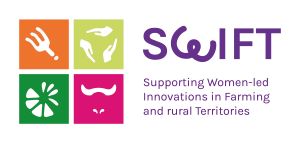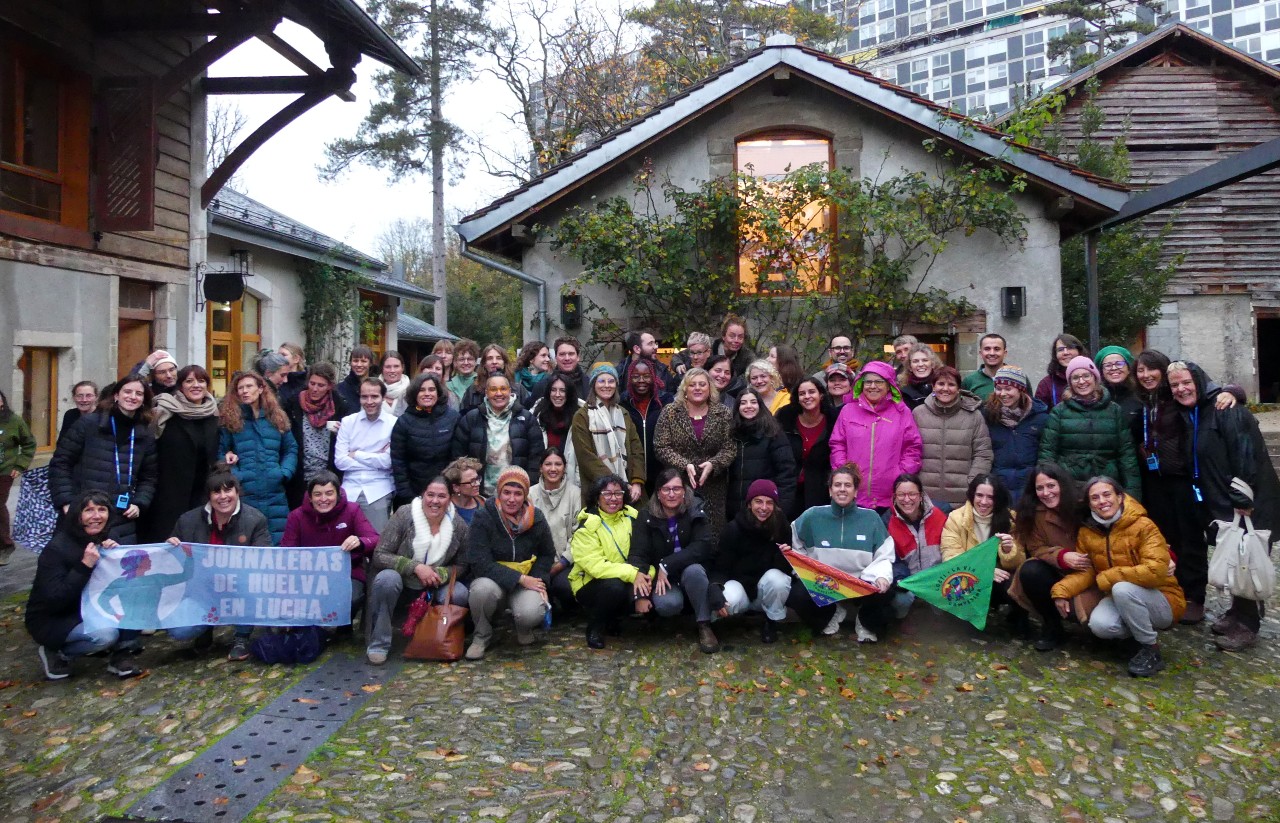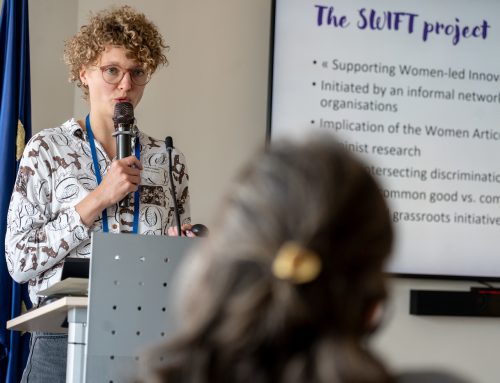By Joanna Bourke Martignoni – Geneva Graduate Institute
Our second SWIFT in-person meeting took place from 18-21 November in Geneva, Switzerland. More than 70 people from 30 different organisations – farmers, civil society and academia – and 13 countries joined us for four days of rich exchanges on different dimensions of peasant feminism, food sovereignty and agroecology. We spent the first two days at the Ferme du Lignon and the second two days in the Maison de la Paix at the Geneva Graduate Institute.
The meeting provided a wonderful opportunity for us to get to know each other better, expand our networks to new partners, share the results of the research activities that we’ve undertaken since our initial project meeting in March 2023, and develop a common vision for the steps that we wish to take together during the next phase of SWIFT.
Our discussions explored a range of crucial themes and methods related to peasant feminism and agroecology in Europe and beyond including;
- participatory video as a way of changing dominant narratives about feminism and agroecology
- gender diversities in rural social movements
- agroecology and rural feminisms in Central and Eastern Europe
- new feminist approaches to measuring the ‘liveability’ of agroecological farms
- integrating the human rights of women and gender diverse migrant agricultural workers into agroecological transitions
- using photo voice and podcasting as ways to communicate ideas emerging from our research to catalyse policy change
- engaging the United Nations’ human rights mechanisms, in particular the new Working Group on the Rights of Peasants, to advance peasant feminism and agroecology in Europe and elsewhere
- cooking up participatory feminist political agendas to transform local, national, regional and international laws and policies on food and agriculture.
Alongside the talking and photos there was also space for music, poetry, dancing, farm visits, fondue-eating and swimming. We left with plans to deepen our work with existing partners and to expand our networks. The next two years will be focused on applying concepts, approaches and strategies to promote agroecological transitions that are firmly grounded in intersectional feminism, food sovereignty and human rights.




